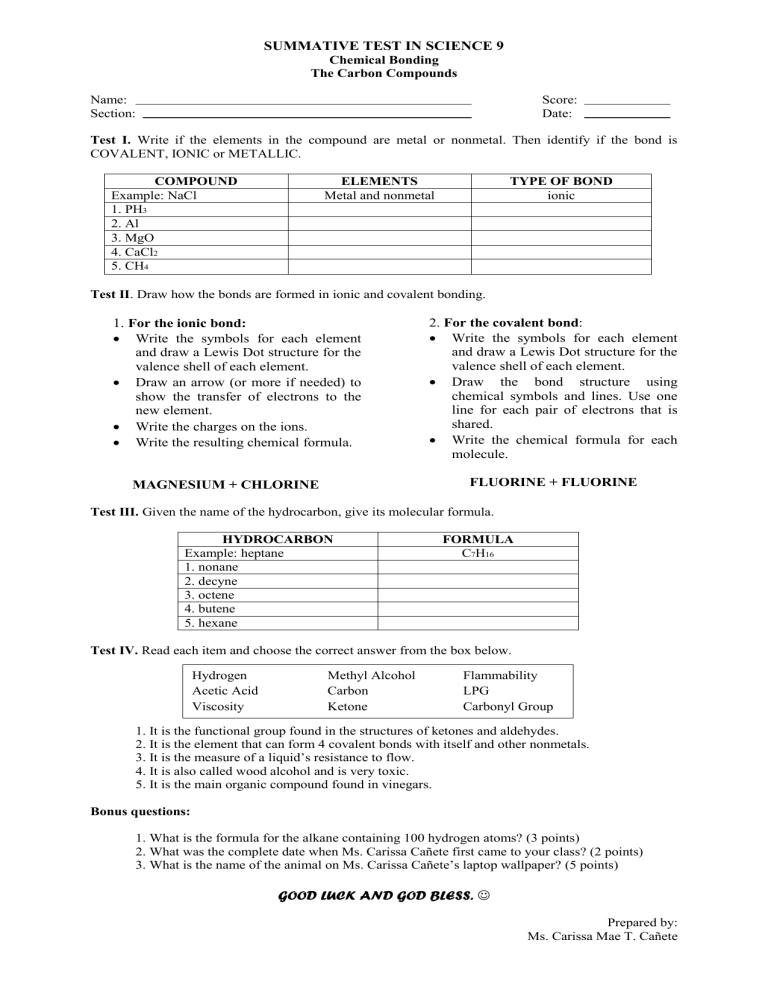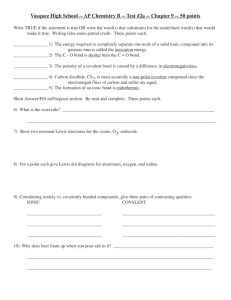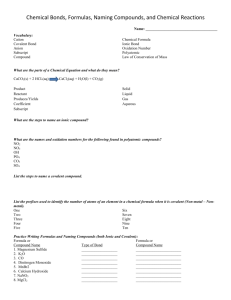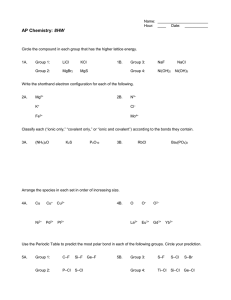
SUMMATIVE TEST IN SCIENCE 9 Chemical Bonding The Carbon Compounds Name: Section: Score: Date: Test I. Write if the elements in the compound are metal or nonmetal. Then identify if the bond is COVALENT, IONIC or METALLIC. COMPOUND Example: NaCl 1. PH3 2. Al 3. MgO 4. CaCl2 5. CH4 ELEMENTS Metal and nonmetal TYPE OF BOND ionic Test II. Draw how the bonds are formed in ionic and covalent bonding. 1. For the ionic bond: Write the symbols for each element and draw a Lewis Dot structure for the valence shell of each element. Draw an arrow (or more if needed) to show the transfer of electrons to the new element. Write the charges on the ions. Write the resulting chemical formula. 2. For the covalent bond: Write the symbols for each element and draw a Lewis Dot structure for the valence shell of each element. Draw the bond structure using chemical symbols and lines. Use one line for each pair of electrons that is shared. Write the chemical formula for each molecule. FLUORINE + FLUORINE MAGNESIUM + CHLORINE Test III. Given the name of the hydrocarbon, give its molecular formula. HYDROCARBON Example: heptane 1. nonane 2. decyne 3. octene 4. butene 5. hexane FORMULA C7H16 Test IV. Read each item and choose the correct answer from the box below. Hydrogen Acetic Acid Viscosity Methyl Alcohol Carbon Ketone Flammability LPG Carbonyl Group 1. It is the functional group found in the structures of ketones and aldehydes. 2. It is the element that can form 4 covalent bonds with itself and other nonmetals. 3. It is the measure of a liquid’s resistance to flow. 4. It is also called wood alcohol and is very toxic. 5. It is the main organic compound found in vinegars. Bonus questions: 1. What is the formula for the alkane containing 100 hydrogen atoms? (3 points) 2. What was the complete date when Ms. Carissa Cañete first came to your class? (2 points) 3. What is the name of the animal on Ms. Carissa Cañete’s laptop wallpaper? (5 points) GOOD LUCK AND GOD BLESS. Prepared by: Ms. Carissa Mae T. Cañete




